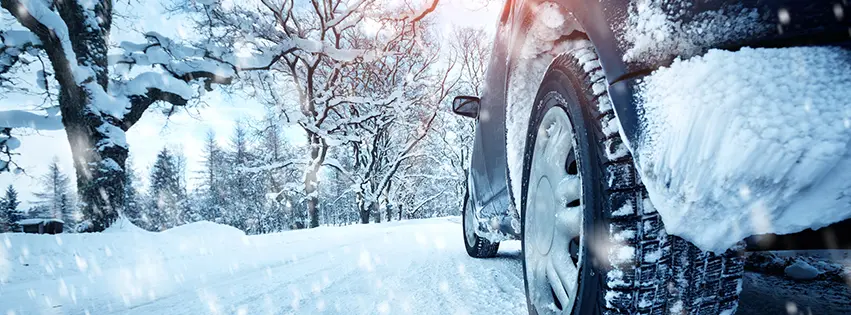
Get Your Car Ready For Winter With This Checklist
As the winter season approaches, it's crucial to ensure your car is properly prepared to handle the challenging road conditions ahead. Cold temperatures, icy roads, and reduced visibility can make driving hazardous if your vehicle isn't winterized. This comprehensive checklist will guide you through essential steps to get your car winter-ready and ensure a safer driving experience. From checking for product recalls to stocking up on winter essentials, we've got you covered to help you face the frosty months with confidence.
8 Tips To Winterize Your Car
1. Check for Product Recalls.
Start your winterization process by checking for any product recalls related to your car. Manufacturers sometimes issue recalls for specific models due to safety concerns or defective parts. Check the National Highway Traffic Safety Administration (NHTSA) website or contact your car dealership with your vehicle's VIN to ensure there are no outstanding recalls that require immediate attention.
2. Get Your Car Serviced.
Regular car servicing is vital to keep your vehicle running smoothly, and it becomes even more crucial before winter sets in. Take your car to a reputable mechanic for a thorough inspection. They will examine the engine, battery, brakes, and other critical components to ensure everything is in top-notch condition to withstand the challenges of winter driving.
3. Check Your Tires.
Tires are your car's only point of contact with the road, making them one of the most critical safety features during winter. Examine the tire tread depth and condition, as well as the tire pressure. Consider switching to winter tires, which offer better traction on icy and snowy surfaces, providing improved grip and handling.
4. Install New Wipers.
Winter means rain, snow, and slush, which can significantly hinder your visibility while driving. Replace old and worn-out windshield wipers with new ones designed to handle winter conditions. High-quality winter wipers will help keep your windshield clear during inclement weather, ensuring a safe view of the road ahead.
5. Check Your Fluids.
Cold weather can affect various fluids in your car, so it's essential to check and top them up before winter arrives. Ensure that your car's engine oil, coolant, and windshield washer fluid are at the recommended levels. Consider using winter-grade engine oil and a washer fluid that won't freeze in low temperatures.
6. Test Your Light and Signals.
With shorter daylight hours and potential snowstorms, visibility is crucial during winter. Test all your car's lights, including headlights, taillights, brake lights, and turn signals. Replace any bulbs that are burnt out and ensure that the lights are properly aimed to provide optimal visibility without blinding other drivers.
7. Feel Your Car’s Heat.
Before the cold sets in, check your car's heating system to ensure it's functioning correctly. A properly working heater will keep you and your passengers warm during chilly commutes. If you notice any issues, have a mechanic inspect and repair the heating system to avoid discomfort during the winter months.
8. Stock Up On Essentials.
Winter driving can sometimes lead to unforeseen situations, such as getting stuck in snow or facing road closures. Prepare for such scenarios by stocking up on essential items. Keep an emergency kit in your car, including items like a snow shovel, ice scraper, jumper cables, blankets, non-perishable snacks, and a first-aid kit. Additionally, consider carrying sand or kitty litter to improve traction if your car gets stuck on slippery roads.
6 Key Considerations For Car Owners In The Winter
1. Extreme cold can damage your car battery.
Consider a trickle charger for batteries of secondary vehicles that are driven less in the winter, such as drop-top jeeps and convertibles. Simply hook a trickle charger up to these units for the winter months. If you don’t have a garage or carport to store your vehicle, remove the batteries and hook them to the trickle charger in a heated area.
2. Snow tires can be a worthwhile investment.
Consider getting snow tires, especially if you live in East Tennessee. Experts advise that snow tires give considerably more traction than any other tire. Even half-worn snow tires provide better traction than brand-new radial tires.
3. Check your antifreeze when the seasons change.
Consider doing an antifreeze drain and fill check with your auto technician or mechanic. Many vehicles run 50-percent coolant (antifreeze) and 50-percent water during summer months. Check with your local professional to see if you should run 100-percent antifreeze in the winter.
4. Always check the basics.
Make sure your tires have the recommended air pressure, replace your wiper blades, and keep your oil changes regular to avoid viscosity issues.
5. Be prepared in case you get stranded in the winter months.
Keeping sand or cat litter in your car is great for pouring in slick, icy areas to give your vehicle some traction if you get stuck. You should also store extra warm clothes and blankets and at least a half a tank of gas in your vehicle during winter months.
6. Regardless of the season, always be prepared for an emergency.
Keep a mobile phone charger, flashlight, snacks, extra bottles of water, and an emergency kit in your vehicle.
Get Your Car Ready For Winter With Confidence
Prepping your ride for the winter season will have you feeling confident and comfortable behind the wheel no matter how low that temperature gets. Any questions or concerns? Reach out to one of our local agents for any of your auto insurance needs.
